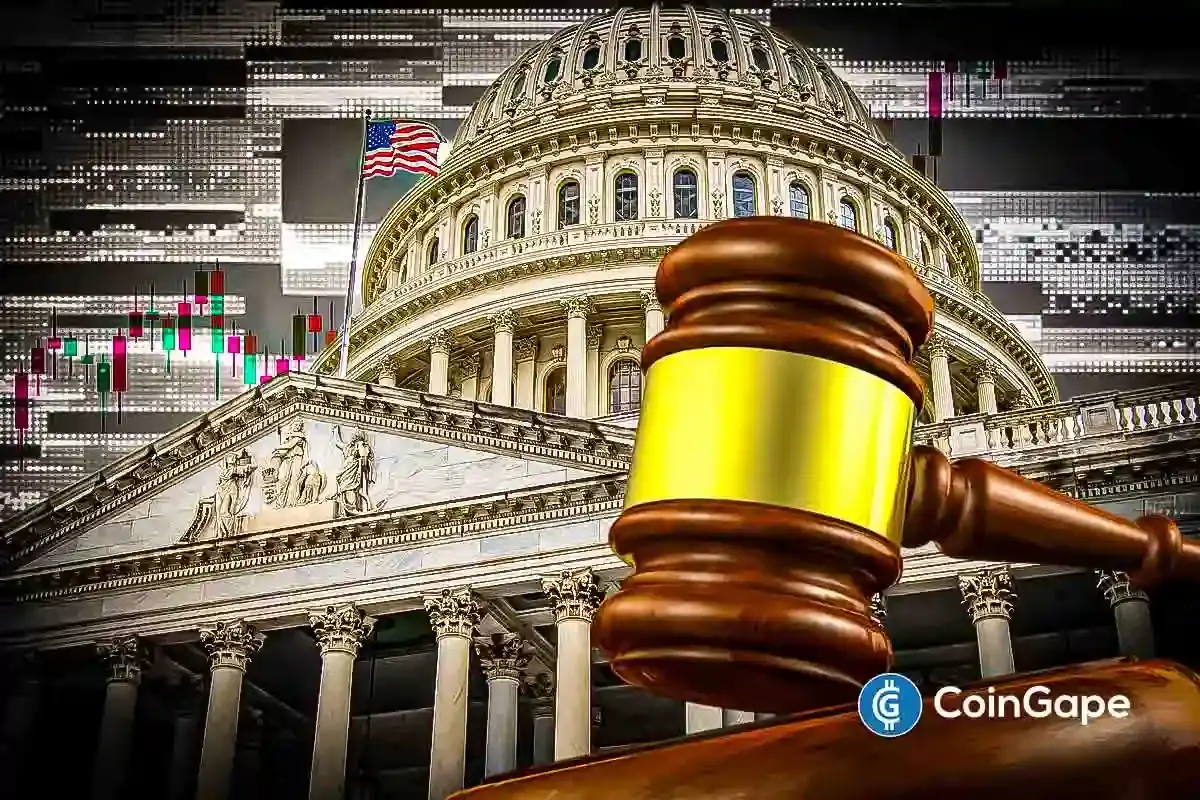Coinbase CLO Accuses FDIC of Anti-Crypto Campaign

Highlights
- Paul Grewal reveals that the FDIC has been actively. trying to restrict banks from offering crypto services.
- The company is pushing for greater transparency from the FDIC and other regulators.
- Coinbase is taking legal action and filing FOIA requests to compel regulators to provide clear guidance.
Paul Grewal, Coinbase Chief Legal Officer (CLO), noted that the situation is gradually becoming clearer as the company has begun to receive information from the FDIC related to its FOIA request concerning pause letters sent to financial institutions under Operation Chokepoint 2.0.
He characterized the contents of these letters as a troubling indication of a government agency working to restrict financial access for law-abiding American companies.
Grewal’s comments highlight the need for transparency in regulatory practices and raise concerns about the implications for the cryptocurrency industry.
Coinbase CLO: FDIC Blocking Crypto Banking
Paul Grewal, Coinbase CLO, wrote that clarity is emerging in the company’s situation with the FDIC. According to his X post, the agency finally has begun producing documents related to the exchange’s ‘Freedom of Information Act’ (FOIC) request for the records associated with the pause letters sent to financial institutions as part of Operation Chokepoint 2.0, following the lawsuit.
Slowly but surely, the picture is becoming clear. After we sued, @FDICgov finally started giving us information related to our FOIA request about the pause letters it sent to financial institutions as part of Operation Chokepoint 2.0. In short, the contents are a shameful example…
— paulgrewal.eth (@iampaulgrewal) November 1, 2024
Grewal said the letters’ contents were a disturbing sign of a government agency reaching to impede access to financing for law-abiding American companies.
He singled out more than 20 cases in which the FDIC called upon banks to “pause,” “refrain from providing,” and “not proceed” with crypto-banking services. Grewal further complained about the need for transparency, referring to the FDIC’s tendency to work behind a “bureaucratic curtain” instead of in open discussion.
Coinbase Takes on Regulators, Demands Clear Crypto Rules
Last week, Coinbase intensified its drive for regulatory clarity by filing several FOIA requests to the FDIC. The move represents just the latest on the part of the cryptocurrency exchange to get clear guidance on how the government of the United States wants to deal with the regulation of digital assets.
The requests specifically seek documents related to any restrictions the FDIC imposes on the quantity of digital assets that American depository institutions can maintain.
Moreover, Coinbase has requested documents detailing how the FDIC has processed FOIA requests since 2022- perhaps a means for the exchange to ascertain trends in the handling of cryptocurrency-related inquiries.
The effort came a couple of weeks after Coinbase filed a lawsuit against the US SEC in Washington, DC, for refusing to respond to FOIA requests on claims that it may interfere with law enforcement activities. The timing of these requests is apt, coming in concert with another case Coinbase has filed against the SEC in the federal appeals court in Philadelphia.
That ongoing litigation seeks to force the regulator to create clear rules written explicitly for cryptocurrency-something that would solve one of the biggest complaints in the industry: a lack of clarity from regulators.
In a recent report by the Blockchain Association, a crypto industry group, crypto companies (among which is Coinbase as well) have reported substantial financial burdens due to the actions of the SEC under the leadership of Chair Gary Gensler.
Shedding Light on Regulators’ Approach to Crypto
In June, Coinbase first filed lawsuits against the SEC and the Federal Deposit Insurance Corp. to force the regulators to turn over documents about their investigations into the cryptocurrency market. The cases filed under the Freedom of Information Act are the latest salvo in Coinbase’s fight with the SEC, which had accused the crypto firm of running an unregistered securities exchange.
The lawsuits were filed in district court in Washington, DC, by History Associates, a consultant Coinbase hired to request the records. Grewal then named additional complicating factors, such as pressures by the FDIC on financial institutions to sever all relationships with crypto-related activities. The documents Coinbase wanted from the SEC pertain to closed investigations that would shed more light on the regulator’s approach to digital assets, including its recent investigation into Ethereum, which it had publicly labeled as not a security back in 2018.
They also wanted letters from the FDIC that called on banks to halt crypto activities after its Office of Inspector General criticized it because this could stifle innovation in the sector.
Coinbase Global Inc is defintiely not backing down in calling out the SEC over its regulation by enforcement strategies. In its latest move in this regard, the firm has filed an Amicus Brief on behalf of DeFi Education Fund and Beba.
- XRP News: Ripple Partner SBI Reveals On-Chain Bonds That Pay Investors in XRP
- BitMine Ethereum Purchase: Tom Lee Doubles Down on ETH With $34.7M Fresh Buy
- BlackRock Buys $65M in Bitcoin as U.S. Crypto Bill Odds Passage Surge
- Bitcoin Sell-Off Ahead? Garett Jin Moves $760M BTC to Binance Amid Trump’s New Tariffs
- CLARITY Act: Trump’s Crypto Adviser Says Stablecoin Yield Deal Is “Close” as March 1 Deadline Looms
- Ethereum Price Rises After SCOTUS Ruling: Here’s Why a Drop to $1,500 is Possible
- Will Pi Network Price See a Surge After the Mainnet Launch Anniversary?
- Bitcoin and XRP Price Prediction As White House Sets March 1st Deadline to Advance Clarity Act
- Top 3 Price Predictions Feb 2026 for Solana, Bitcoin, Pi Network as Odds of Trump Attacking Iran Rise
- Cardano Price Prediction Feb 2026 as Coinbase Accepts ADA as Loan Collateral
- Ripple Prediction: Will Arizona XRP Reserve Boost Price?
















